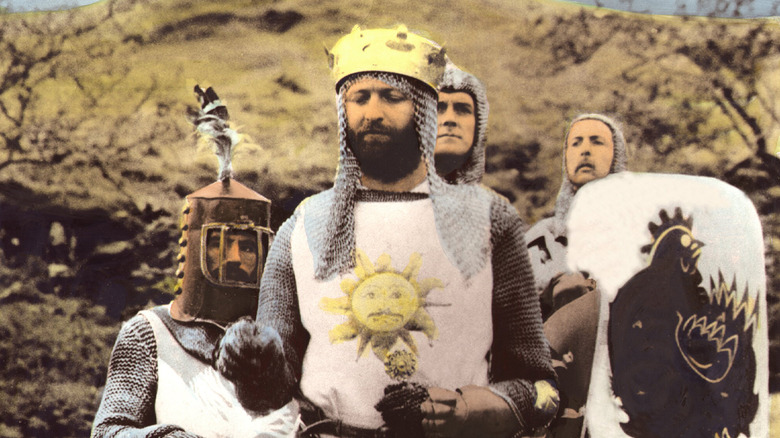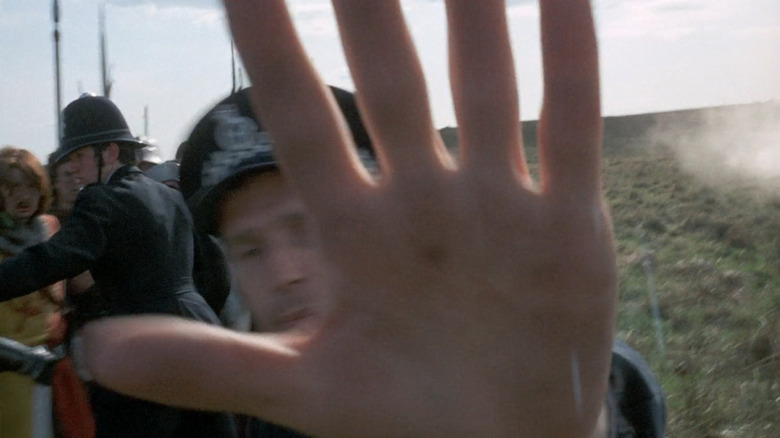The Real Reason Monty Python And The Holy Grail Ended With Police
Prior to the release of "Monty Python and the Holy Grail" in 1975, the British comedy group had only released sketches, and the film was their first feature-length narrative. It has since stood the test of time to be hailed by some as the best comedy movie of all time. But even to this day, its ending perplexes fans.
As Monty Python fans will recall, "Monty Python and the Holy Grail" ends with Arthur (Graham Chapman) and Sir Belvedere (Terry Jones) ready to launch their final assault on Castle Aarrgh. However, before their army can charge forth, the fourth wall breaks completely as the police arrive, arresting the pair and turning off the camera. It's one of the most iconic endings in comedy film history, but what led Monty Python's stars to write it?
As it turns out, the decision to end the film with the knights' arrests was nothing more than a cost-saving measure — one of many employed in the making of "Monty Python and the Holy Grail." In 2018, the English newspaper The Times discovered a trove of previously unseen sketches from the film in Python member Michael Palin's private archive. Among them was an alternate version of the ending in which a battle was waged by the knights of Camelot against the French soldiers, with the involvement of the Killer Rabbit of Caerbannog. However, that ending was ultimately cut to save costs.
Police stopped the Holy Grail's climactic fight as a cost-saving measure
It's hard to imagine what would have become of "Monty Python and the Holy Grail" had the comedy group been able to afford their preferred ending for the film. The ending involving the police that was released felt downright avant-garde for the time and showcased Monty Python's irreverent style of comedy. Without that fourth wall break, other elements of the film would have felt shaggier, whereas with it, the gags and tangents throughout feel more deliberate.
In fact, the ending wasn't the only part of "Monty Python and the Holy Grail" to be affected by budgetary constraints. In place of real horses, the knights famously mime horse riding, and the sound of coconuts clapping together was used to simulate the sound of hoofs. As John Cleese reiterated in a 2018 interview on "Late Night with Seth Meyers," that beloved gag was conceived after it became clear the production couldn't afford real mounts. The coconuts, too, were Michael Palin's idea. As Cleese explained, "That's why Michael Palin came up with the idea of the coconuts. You know, necessity is the mother of invention, and sometimes you don't have much and you have to improvise. That's sometimes when the very best ideas come through."

